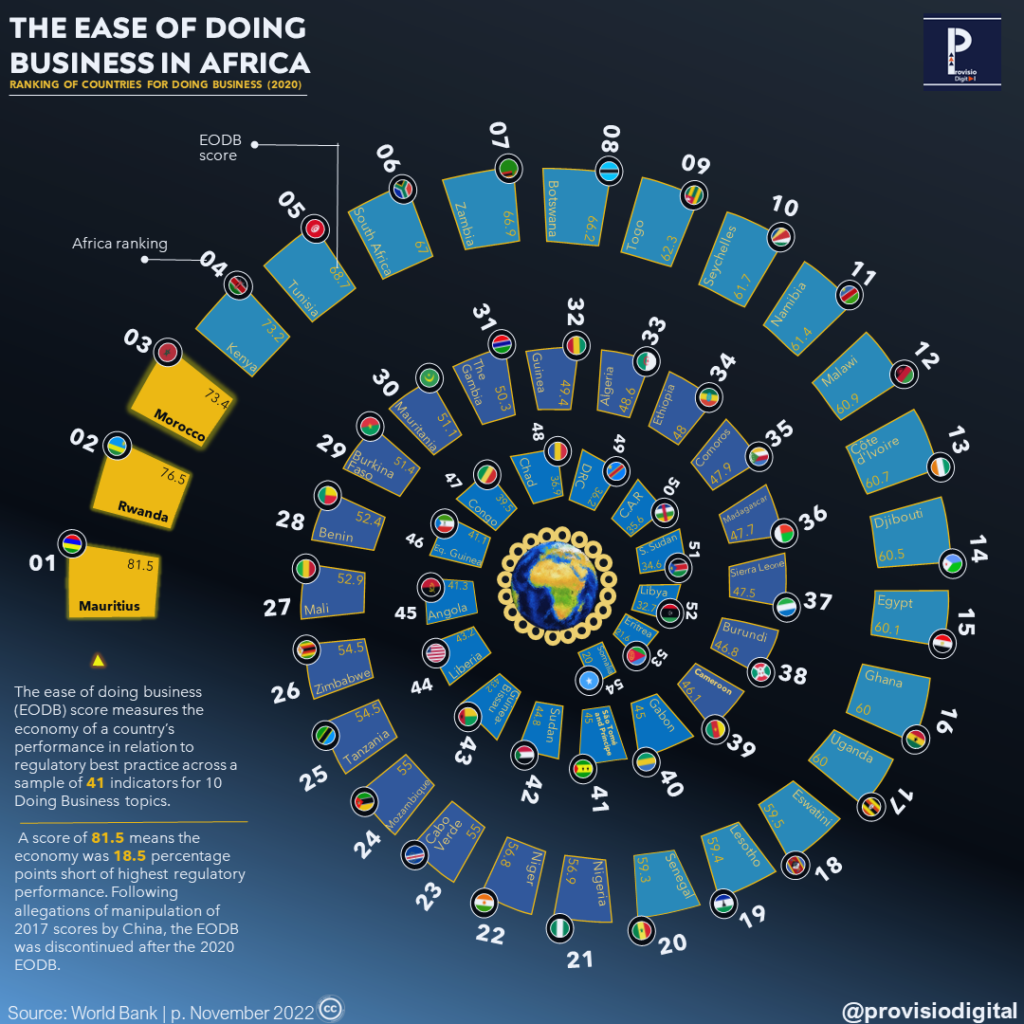Why We Looked Into This »?👀
|
The World Bank’s ease of doing business (EODB) score evaluates a country’s economic performance based on adherence to regulatory best practices across a set of 41 indicators covering 11 Doing Business topics, which contribute to the overall ranking of the economy.

Ease of Doing Business Score for African Countries
- These topics are:
-
- Starting a business
- Dealing with construction permits
- Getting electricity
- Registering property
- Getting credit
- Protecting minority investment
- Paying taxes
- Trading across borders
- Enforcing contracts
- Resolving insolvency
- Contracting with the government (added to the EODB 2020 report)
-
- A score of 81.5 means the economy was 18.5 percentage points short of highest regulatory performance.
According to the World Bank,
The goal of the Doing Business series is to provide objective data for use by governments in designing sound business regulatory policies and to encourage research on the important dimensions of the regulatory environment for firms.
- After an internal audit report raised concerns on pressure to change the data points for China, the report was discontinued in 2021.
- There are plans by the World Bank to replace the report in 2023.
- In the 2020 EODB Report, there are 22 cities in the list of 213 economies. Technically, there were more than 190 countries observed.
- The African country with cities considered was Nigeria – Kano and Lagos.
- While Nigeria’s score is 56, Kano had 58.2 while Lagos had 56.5.
Ranking of African Countries on The EODB
- Mauritius ranks highest in Africa in EODB and 13th in the world while Somalia ranks lowest in the world.
- There are ten (10) African countries in the top 100 – Mauritius, Rwanda, Morocco, Kenya, Tunisia, South Africa, Zambia, Botswana, Togo and Seychelles.
- Most of the African countries feature on the bottom of the list; 44 of them are outside the top 100 countries.

This work is licensed under a Creative Commons Attribution-NonCommercial 4.0 International License.


